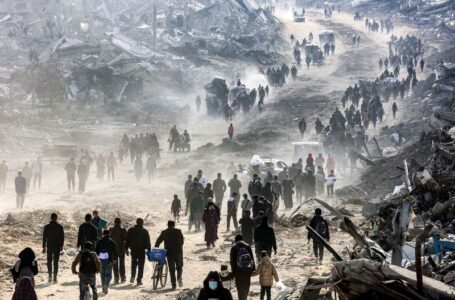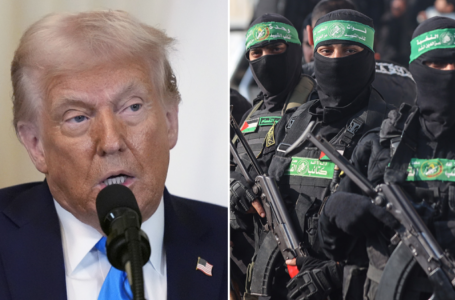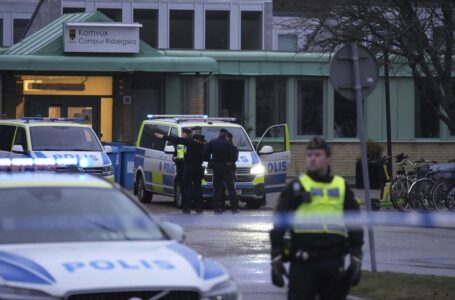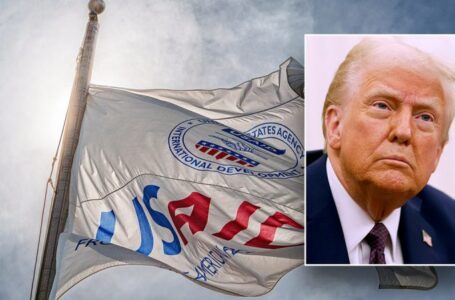Palestinians refuse to relive 1948 as Trump suggests leaving Gaza
Court orders millions in compensation for survivors of New Zealand’s deadly volcanic eruption
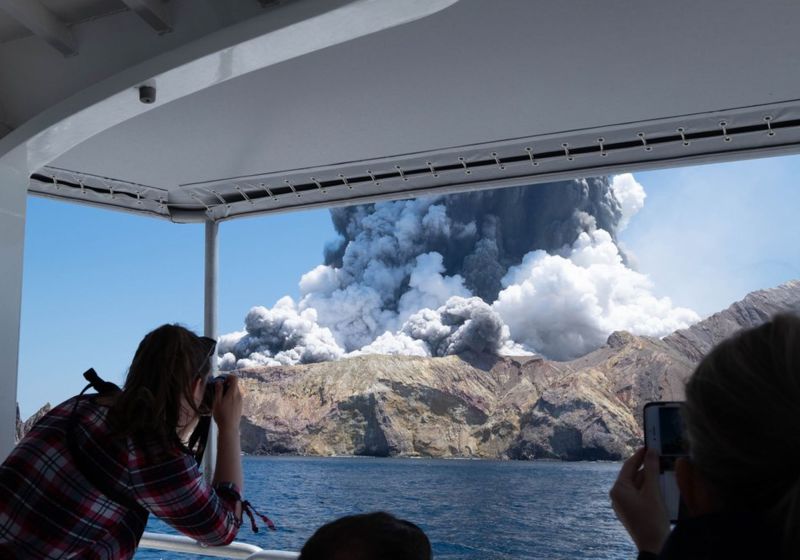

Tour operators and a company which owns the New Zealand island where a volcanic eruption killed 22 people and wounded many others have been fined $1.6 million (NZ$2.6 million), and ordered to pay victims and surviving families $6.2 million (NZ$10.2 million) in compensation.
The District Court in Auckland handed down its sentence on Friday, ending a criminal prosecution brought by WorkSafe, New Zealand’s health and safety regulators, to seek justice for 47 tourists who were on Whakaari or White Island on December 9, 2019.
The island, 48 kilometers (30 miles) off New Zealand’s North Island, was once a popular tourist destination for those wanting to trek up the slopes of an active volcano.
The weeks-long trial held last year revisited horrifying testimony of how the island turned into “an oven” for the holidaymakers on that fateful day as the volcano erupted.
Survivors scarred by severe burns testified against various companies – including Whakaari Management Ltd, which owned the island – accusing them of failing to warn them about the risks.
On Friday, Judge Evangelos Thomas found both Whakaari Management Ltd and the tour operators had failed to conduct adequate risk assessment, breaking health and safety laws with devastating consequences.
He said the operators had failed to seek advice from volcanological experts and failed to appreciate the unpredictability of an eruption, leading to an incorrect assessment of risk mitigation. The owner of the island, meanwhile, failed to make sure the operators had examined the risks properly, the judge added.
Whakaari Management Ltd, owned by brothers Andrew, Peter and James Buttle, was convicted after trial, having previously pleaded not guilty to a charge under the country’s Health and Safety at Work Act. They were fined $636,034 (NZ$1,045,000) and ordered to pay reparation of $2.9 million (NZ$4.8 million), in total the most substantial amount of all the defendants in the case.
The four other operators are White Island Tours Ltd, Volcanic Air Safaris Ltd, Aerius Ltd and Kahu (NZ) Ltd.
Thomas noted that all defendants have either stopped trading, have no assets, were in liquidation, or were in a weak financial position.
For Whakaari Management Ltd – which claims to have “no assets” – the judge said the Buttles family appeared to “have profited handsomely” from the tour operation, even though he cannot order shareholders to pay out of their own pockets.
But he warned: “There may be no commercial basis for doing so, but many would argue there is an inescapable moral one.”
“We wait to see what the Buttles will do. The world is watching,” he said.
The 47 people on Whakaari that day included honeymooners and families from countries such as Australia, the United States and Malaysia.
During the trial in July last year, survivors described the extreme conditions and searing pain they found themselves as they fled for their life following the eruption.
Tourist Annie Lu, who suffered from burns to 38% to her body, recalled feeling like “sand and rocks everywhere that were being thrown” at her.
“It was just like someone heated up some needles until it was iron hot and then shoving it all onto you,” she testified from Australia through a video link in July last year.
“Think of, if you open an oven and the heat just rushes at you. It’s kind of like that but 1,000 times worse,” she added.
American tourist Matthew Urey said he struggled to breathe as they were enveloped by waves of heat that prosecutors estimate reached 100 degrees Celsius (212 degrees Fahrenheit), or more.
“I don’t know whether it was steam or hot ash, but it was all over us,” he testified during the trial.
Video replayed during the trial showed huge plumes of ash dwarfing the group of tourists, who had been escorted by tour guides from the jetty, where their boat had docked, to the crater.
In the judgment Friday, the judge acknowledged the “harm,” noting the “excruciating and traumatic injuries” from which many victims still suffer and the grief “felt by those who lost loved ones.”
“Even if it is difficult for someone who has not endured it to possibly imagine it, we admire and respect those who are so courageously learning to rebuild themselves, their lives, their families,” he said.

